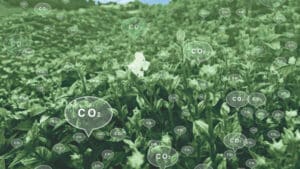The 2023 United Nations Climate Change Conference (COP28), a pivotal gathering dedicated to addressing climate change, is now in progress in Dubai, and gives the world an opportunity to assess the profound implications of climate change on crop production.
One message is clear at this important gathering of policymakers: the world needs critical players in both the public and private sector to help address the multifaceted challenges posed by climate change.
Climate change has ushered in a host of challenges for agriculture, where crop yields and quality are significantly affected by fluctuating temperatures, erratic weather patterns, and an increasing prevalence of extreme climatic events.
From an agricultural perspective, two critical areas demand our attention.
Soil health: This stands as the cornerstone of crop agriculture and carbon cycling, playing a pivotal role in carbon sequestration. This process involves storing carbon in the soil, primarily through plant biomass. However, it is essential that the soil remains vibrant for this cycle to function effectively. Unfortunately, current practices are causing accelerated soil erosion, imperiling the future of arable land. Acadian’s seaweed extract-based tools help remedy this.
Abiotic Stress: This is responsible for a substantial 70% of crop losses, and poses a significant challenge that we are determined to address. Biostimulants like Acadian’s technology stimulate a physiological response in plants to switch in the natural defence to stress, including an increase in root biomass, which fosters greater soil carbon content and a more productive microbiome.
Healthier soil and the prevention of abiotic stresses boosts food availability for plants and plant health, creating a cycle of heightened crop productivity and improved agricultural sustainability.
Our dedication to compatibility transcends our own technologies. Our strategic partner in Brazil, Koppert do Brasil, specializes in biocontrol solutions that employ fungi and bacteria to combat plant diseases. The amalgamation of our technologies yields a synergistic effect. By bolstering a plant’s natural health, we amplify its inherent defenses, enabling biocontrol technology to function more effectively.
It is akin to starting off with a robust, healthy crop rather than attempting to protect a distressed one, a concept validated by data supporting this one-plus-one-equals-three approach.
Connecting all these elements to global initiatives such as COP28 is paramount. Acadian’s products align with these endeavors. Incentives for adopting sustainable agricultural practices are imperative, and we must devise means to gauge and reward the long-term benefits of soil health.
The full impact of enhanced soil health may take several years to manifest. As a company, we lead by example, showcasing the advantages we bring to sustainable agriculture. While the journey may be arduous and complex, it is indispensable for the future of our planet.









